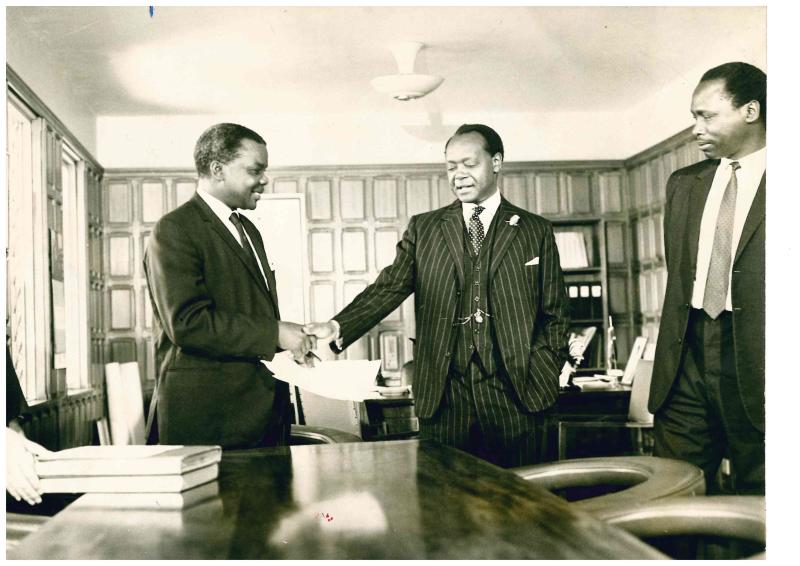×
The Standard e-Paper
Smart Minds Choose Us

Argwings Kodhek (left) Charles Njonjo (centre) and Daniel Moi [Courtesy]
Apart from a road being named in his honour, little is remembered about Argwings Kodhek’s selfless contribution to the freedom fight.